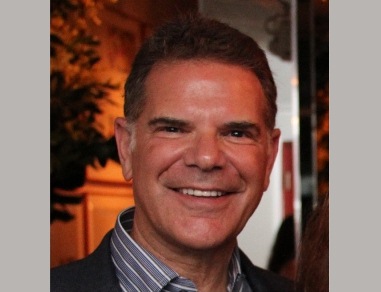First-Time Voters May Deliver Democrats' Winning Edge in November - Jack Myers ThinkTank

Jack Myers is author of the best-selling new book Hooked Up: A New Generation's Surprising Take on Sex, Politics and Saving the World.Available at Amazon, BN.com and all booksellers.
In the opening scene of the premiere episode of Aaron Sorkin's excellent HBO series, Newsroom, news anchor Will McEvoy, played convincingly by Jeff Daniels, berates a 20-year old Northwestern co-ed, telling her she's part of the worst generation of college students EVER! In the final scene of the first season's final episode, McEvoy acknowledges her generation is the reasonAmerica is a great country today. After conducting an in-depth study on today's college students for my new book, Hooked Up, I'm convinced that this group of 18-22 year-olds may just be the next great generation, taking a leadership role in saving a world that often seems to teeter on the verge of collapse.
generation, taking a leadership role in saving a world that often seems to teeter on the verge of collapse.
In the upcoming election, many of these 21.2 million young people will be voting for the first time. My research, conducted with research firm Ipsos/OTX, finds that most of them will vote, will be an influential and progressive bloc, and may prove to provide the margin of victory for President Obama and other Democratic candidates.
Most research on young voters is conducted among the larger group of 80 million + Millennials, also known as Generation Y, born 1982-2002. But the Internet, introduced in 1993, is a dividing line that separates everyone who was born before and after. My research turned up a third sub-set of Millennials born 1991 to 1995 -- a bridgegroup who are different from groups born even a couple years earlier and very different in their likely voting patterns from those born a decade earlier. They're the Hooked Up Generation – hooked on the Internet, hooked together by the Internet, and hooking up with political candidates and issues in relationships defined by and managed through the Internet. They are Internet Pioneers of sorts, the first to cross from the pre to post-Internet Age. As pioneers, they are leaders and will have inordinate influence and impact on future generations. Internet Pioneers may prove to be the most politically involved and committed in history, with significant influence over who will win offices for decades ahead.
The Hooked Up Gen are builders whose goals are focused on achieving a more stable future, a more tolerant society, doing social good, using online tools to bring people together, and achieving more economic balance. The Hooked Up Generation will be a quiet, socially conscious political force to be reckoned with, a bridge between generations that grew up in 20th-century politics controlled by politicians and the news media and 21st-century politics that will be increasingly impacted by wikis, collaborative enterprise and one-to-one online discourse. Internet Pioneers are connected online to the issues about which they're passionate. They're more likely than preceding generations to engage in politics through online organizations and communications than caucuses in high school gymnasiums and door-to-door canvassing. The Internet is their community center where they turn to find stability in a chaotic world. They understand how to use the Internet as a powerful tool to achieve their goals and this extends into social and political activism.
Election battles are being fought on blog posts, social networking sites, and hundreds of online media outlets. They're updated minute-by-minute and hold politicians accountable for every comment, every inconsistency, every factual inaccuracy, every involuntary facial reaction. Twitter, Facebook and YouTube are more influential to Internet Pioneers than The New York Timesand the Wall Street Journalcombined. When President Obama announced his plans to run for re-election on the 140-character-or-less social media venue Twitter, no one seemed surprised. When he launched his 2012 campaign with a YouTube video, commentators discussed the venue as much as the message — a clear indication that television is gradually taking a backseat to the instant access of the Internet.
These first time voters are well-equipped to sort through and process the multiple strands of communications and propaganda. They have a world of knowledge at their fingertips and they know how to use and exploit it. They have access to the world's finest libraries, opinion writers, philosophers, and media outlets, and they will take all of those voices into account as they make their selections at the polls. With all this information available, the Hooked Up Gen is less interested in listening to long speeches and debates. They want concise statements of opinion and they want facts. They want to know whether a candidate is pro-life or pro-choice — not explanations or arguments for or against individual positions. They want politicians to listen to their points of view and acknowledge their right to have them.
Hooked Up voters will research the ideology and voting history of the candidates in the 2012 elections and beyond. They will share what they learn with their friends, create their own mini-campaigns, and use a variety of digital and social communications techniques to express their support. They will receive, interpret and share information from a vast network of experts and pundits, often in the form if 140-character Twitter feeds. Internet Pioneers will be activists in advancing technologies to enable online registration and voting, with the expectation that online voting is not just practical, it is their right.
The Hooked Up Gen will be more likely to vote for those who connect effectively on a one-to-one basis, who are honest and sincere in their opinions, are the least extreme, and who prove open and accepting of those with whom they don't agree. There will continue to be polarization on most social and foreign policy issues, but if today's college students are a window to the future, the weight of the population will swing toward more progressive and moderate views.
The debates and conflicts that have dominated the politics of the past couple of decades have created some confusion and uncertainty among those who grew up during this period, creating a base of first-time voters who are still listening to both sides on key issues such as health care without having formed a clear opinion of their own. But on most issues, especially social issues that are polarizing society, Internet Pioneers have formed a clear and relatively cohesive voting bloc that will increasingly inform the politics of the nation. With a margin of 9.5 million votes between Barack Obama and John McCain in the 2008 election, a voting bloc of nearly 21 million could prove to be the margin of victory for the president's second term and the coattails for progressive candidates.
19th-century philosopher of science Auguste Comte suggested that "social change was determined by generational change and in particular by conflict between successive generations." If that's the case, in the next several years we may experience the most confrontational and societally beneficial "clash of the cultures" that the world has witnessed in a long time.
Jack Myers is a media ecologist, writes the weekly Jack Myers Media Business Report, and is author of Hooked Up: A New Generation's Surprising Take on Sex, Politics and Saving the World.www.hookedupgen.com.
author of Hooked Up: A New Generation's Surprising Take on Sex, Politics and Saving the World.www.hookedupgen.com.
Jack Myers can be reached at Jack@mediadvisorygroup.com. JackMyersThinkTank is free and underwritten, as part of MediaBizBloggers.com, by subscriptions to Jack Myers Media Business Report (www.jackmyers.com). Subscribe free to all MediaBizBloggers reports at www.MediaBizBloggers. For Jack Myers Media Business Report subscription information visit Subscription Info or contact Jack Myers at Jack@mediadvisorygroup.com. Jack Myers and Media Advisory Group provide details on all underwriters and companies in which we have an investment at www.jackmyers.com.


